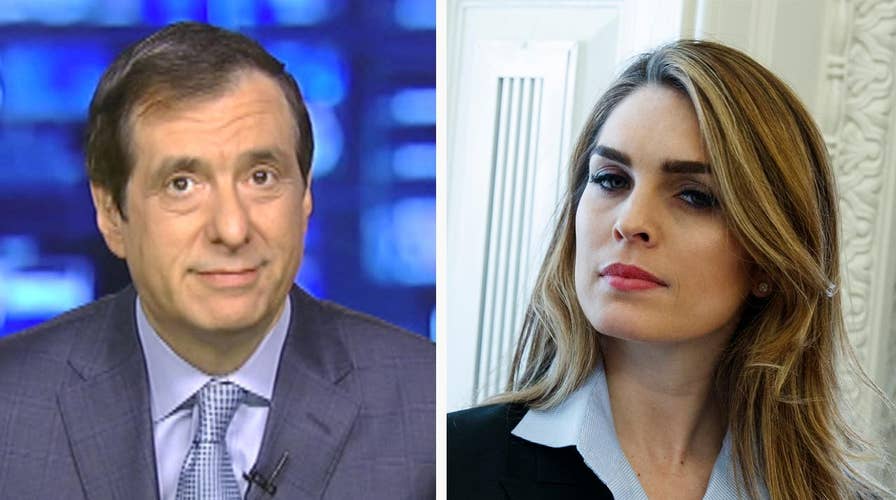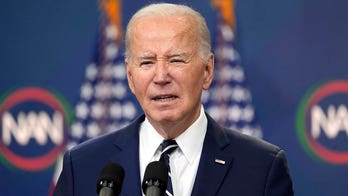Kurtz: How an ex-model wielded power at the White House
'MediaBuzz' host Howard Kurtz weighs in on the media coverage surrounding Hope Hicks' resignation and the behind-the-scenes power she wielded in the White House.
There was no good time for Hope Hicks to leave.
The woman who had been at Donald Trump’s side before he launched his campaign, who had become one of his closest confidants, who could read his moods better than anyone, was always going to leave a vacuum when she walked out the door.
But it’s a measure of her fierce loyalty to the boss, and lack of concern for her own image, that she didn’t try to spin her own departure. And the result is that she got roughed up a bit as she decided to walk out the door.
By announcing her resignation the day after her closed-door House testimony, Hicks allowed it to appear that she was quitting because the appearance was a disaster. And those who know her say it was a tipping point for Hicks, who had been telling friends for weeks that she was utterly exhausted and wanted to leave.
The New York Times said Hicks had testified that she sometimes told white lies for her boss. That, needless to say, is not a good look for a White House communications director.
But Republican congressman Peter King told the Washington Post that Hicks, who said she never lied in the Russia investigation, was avoiding a Democratic “perjury trap” and “never lied about anything of substance—so that white lies could have meant saying Trump wasn’t available for a meeting when he actually was.
A more image-conscious official would have found ways for her allies to leak her explanation. Hope didn’t.
Nor did she attempt to rebut an account that Trump had berated her about her testimony. Hicks was a buffer who knew how to absorb the inevitable presidential tirades, and colleagues would sometimes ask her to bring him bad news.
Inevitably, she was involved in certain messes. Some questioned her initial role in defending Rob Porter, the staff secretary fired over abuse allegations from two ex-wives, because she had been dating him. And some questioned her role in explaining Donald Trump Jr.’s campaign meeting with the Russians—one of many subjects that must have come up in her interviews with Robert Mueller.
Hicks didn’t seek to run the 40-person communications shop. She took the job on an acting basis after Anthony Scaramucci’s flameout and it later became permanent, giving a defined set of responsibilities to someone who had always had a wide-ranging portfolio.
It’s true that the president may miss her presence, especially now that most of his original team—Reince Priebus, Steve Bannon, Sean Spicer, Dina Powell and many others—have left. But Trump still talks regularly to people like Reince and Corey, so Hicks could remain an important sounding board.
I first met Hope Hicks, who had worked for Ivanka’s business, in the first week of the Trump candidacy, when she and Corey Lewandowski were pretty much the campaign. Many reporters got to know her even as she stayed firmly behind the scenes.
Hicks had a major influence with few fingerprints. Last year, when the president began pausing virtually every day to talk to reporters, either at photo ops or getting on or off Air Force One, Hicks was a major proponent of that strategy.
In the last two weeks of the general election, when just about everyone thought Trump would lose, a friend asked me if I would write about Hicks’ key role so there would at least be a public record of what she had done for the candidate.
There was just one problem. Hope said no way.





